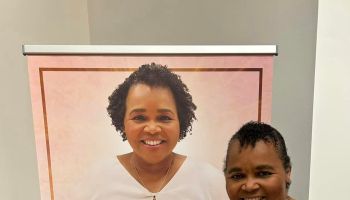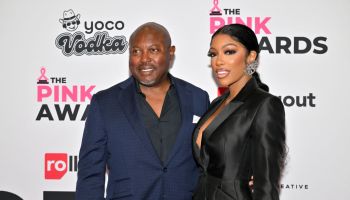Check out this very interesting article from Clutch Magazine:
I love reality TV and I won’t apologize for it either. Maybe that makes me a part of the problem. It is entertaining and packed with drama, but the critic in me is highly interested in race, popular culture and gender representations on television which keep me tuning in at least three days a week to various reality shows.
MTV’s “Real World” was my first introduction to reality TV at the age of 10. There was something appealing about watching the pseudo “real” lives of total strangers living together under one roof. Reality television in the early 90’s didn’t seem as harmful as it is today. As an adult I realize the images of minorities, particularly Black women, portrayed on countless reality shows are making it hard for people to decipher reality from fiction.
My addiction to reality TV does not negate my concern for the representation of Black women on these shows. Like many women of color I cringe when Black women are “p*ssy-popping” on national television for the likes of Flavor Flav, or calling each other out over trivial things. The recent headlines of Star Jones and Nene Leakes’ blowout argument on “Celebrity Apprentice” were quite disappointing. And I felt embarrassed for Black women pretty much the entire season of “Basketball Wives.”
Even with their supposed status, the women of “Basketball Wives” were not exempt from foolish behavior. But what would a reality show be without drama? Ironically, there was only one married woman on a show about the wives of professional basketball players. Needless to say she’s now headed for divorce. The class and elegance they prided themselves on having sounded good, but was in actuality nonexistent. Seeing grown women curse, yell, throw drinks and physically fight in public was appalling. The bullying tactics and pettiness instantly reminded me of high school.
What does the representation of Black women on reality TV suggest about Black women as a whole?
Here’s where the problem lies. It is only inevitable with multiple reality shows portraying Black women as jezebels, mammies, sapphires and tragic mulattos, audiences will walk away believing this to be a true representation of Black women. And those images transfer into how Black women are viewed and treated in their everyday lives. There is also an unfortunate void of Black women in television (and films), which eliminates what would be an otherwise balance. If shows similar to “Living Single” existed for every three reality shows, Black women wouldn’t at least be portrayed as one-dimensional. Ideally, marginalized groups would have an array of options on television to depict our diverse stories. Perhaps if Black shows with nuance were prevalent we would be able defy the constant negative representations we see throughout reality TV, but diverse characterizations of Black women are solely lacking.
Reality TV not only serves as a mirror of reflection of our ideas about Black women, but it also raises the question if these are images of Blacks we want those of other races and ethnicities to see.
With 3 million viewers, “The Real Housewives of Atlanta” has the highest ratings of the Real Housewives franchise. Anderson Cooper, Demi Moore and Ashton Kutcher are a few of the White celebrities who have publicly professed their love for the RHOA. Every time one of my White counterparts uses colloquialisms such as “Ya know what I mean?” or “Oh no he didn’t” and other ridiculous phrases they assume I use because I’m a “sistah,” I wonder if this is the result of reality television. And I am frightened for the impressionable young girls who are watching, trust they are watching, who will internalize what these images say about Black women.
Though there are women of all races who act like this in real life, we are at a point in television where we have to ask if we would rather see a negative portrayal of Black women or no representation at all. By no means do I condone the sometimes funny, but disturbing behavior, however, I do think it’s problematic to attempt to silence it by not showing it at all.
I’m not at liberty to tell Black women what we must do as I will continue to tune in. But I do hope when Black women are cast on these shows they will make an earnest effort to resist stereotypical behavior. I hope networks will start seeing shows like “Girlfriends” as profitable, eventually cutting down on the phenomenon of reality TV altogether. And while I’m watching, I hope with all the air in my lungs people are not walking away from this unable to determine the real from the fake.
















